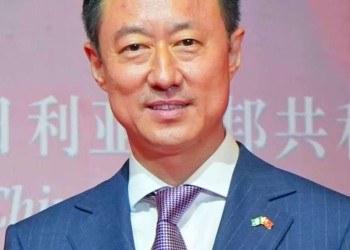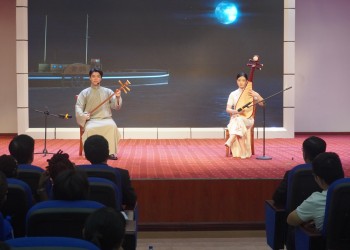His Royal Majesty, King Bubaraye Dakolo is the Chairman, Traditional Rulers Council of Bayelsa State. He spoke to some journalists recently about the rich culture of the Ijaw people and why the oil-rich state remains the best tourism destination in the country. ROLAND OGBONNAYA presents the excerpts
bayelsa State is 26 now, kindly tell us from your perspective as a monarch, how the journey has been.
Thank you. 26 years is a lot of time if you ask me, but it is nothing in the life of a nation or a state because states are meant to live forever. However, I will say that so much impact has been made. For the traditional institutions, when the state was created in 1996 we had King Joshua Egbugburu, who became the pioneer Chairman of the Traditional Rulers Council. Between his tenure and mine, so many other persons have held the chairmanship position, so I will say there has been a lot of progress, even in terms of stipends. It was very small in those days, even during the time of Dickson as Governor but today let me say it has increased.
The traditional ruler has also gotten some prominence in the sense that it is not just what people used to assume them to be, a traditional ruler is not a witch doctor, he is a human being who is superintending over an enclave, it could be a big or small enclave. Most of the traditional rulers are retired public servants, retired security agents, and some academicians. So the traditional rulers in Bayelsa State in particular are highly revered, we have people who are past ministers of Petroleum, owners of Banks, CEOs of Banks and so on and so forth.
Tell us about the Bayelsa culture and why it’s different from any other state in Nigeria.
The Bayelsa culture is similar and diverse, so when you come to Gbaraintoru for instance, what you are going to see is the Izon culture display as displayed by the Gbaraintoru people in Ekpetiama. If you go to Kaiama you will see the Kolokuma people displaying the Izon culture in Kaiama and so on. So first of all you get the organic Ijaw culture here in Ijaw land. For instance, the Bayelsa Cultural Troop could take their dance, their rhythm, their music to Abuja. It is the Ijaw culture that is going there, they could take it to Jos, they could take it to Lagos and they have actually taken it to all of these places and have won, standing out as the best cultural troop more than a dozen times.
That tells you the uniqueness of the Ijaw culture. Culture itself is like a mirror of the lifestyle, of the vocation of the people, so our culture is intertwined with the way we survive, the way we farm, the way we fish and so on. You see dance steps that are typical of a Bayelsan because of the way he fishes and the way he earns his living traditionally. So, I will invite every non-Bayelsan to look for the Ijaw culture from any enclave generally beyond even Bayelsa and find a way to attend their marriages, dances, and ceremonies.
If you have the opportunity to stand before tourists and investors, how will you convince them to invest in Bayelsa?













































